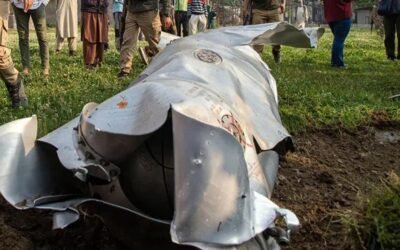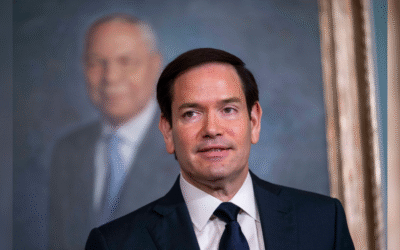The global security landscape in 2025 is witnessing a profound transformation. Traditional military alliances, notably NATO, are facing unprecedented challenges, while new, ad-hoc coalitions are emerging, driven by pragmatic considerations of shared economic and security interests. This shift is reshaping the contours of collective security and global stability.
NATO at a Crossroads
The North Atlantic Treaty Organization (NATO), established in 1949 as a bulwark against Soviet expansion, is confronting internal and external pressures that threaten its cohesion. The 2025 NATO Summit in The Hague underscored these strains. While member states pledged to increase defense spending to 5% of GDP by 2035, a historic commitment, the alliance’s unity remains tenuous. Debates over burden-sharing, divergent threat perceptions, and the United States’ fluctuating commitment under President Donald Trump have fueled doubts about NATO’s future viability.
President Trump’s second term has been particularly destabilizing for NATO. His administration’s “America First” policy has led to a diminished U.S. presence in European security matters, prompting European nations to reconsider their defense strategies. The U.S. has signaled a potential withdrawal from NATO, citing the failure of some member states to meet the 2% of GDP defense spending target.
Rise of Ad-Hoc Coalitions
In response to NATO’s challenges, countries are increasingly forming ad-hoc coalitions tailored to specific security concerns. These coalitions are characterized by flexibility, rapid decision-making, and a focus on shared interests rather than ideological alignment. One notable example is the “Coalition of the Willing,” a European-led initiative comprising France, Germany, the United Kingdom, and other EU nations, formed in early 2025. This coalition aims to coordinate defense efforts independently of NATO, reflecting a growing sentiment in Europe to take greater responsibility for regional security.
Similarly, the NorthSeal initiative, operational since January 2025, exemplifies regional cooperation outside traditional alliance frameworks. Comprising Belgium, the Netherlands, Germany, Norway, the United Kingdom, and Denmark, NorthSeal focuses on securing critical maritime infrastructure in the North Sea. While NATO is an optional partner in this endeavor, the initiative underscores a trend toward localized security arrangements.
Implications for Collective Security
The proliferation of ad-hoc coalitions signifies a paradigm shift in collective security. Traditional alliances, with their rigid structures and broad mandates, are being supplanted by more nimble, issue-specific partnerships. This evolution reflects a strategic reorientation where states prioritize immediate, tangible security concerns over ideological cohesion.
However, this shift presents challenges. The lack of institutionalized frameworks in ad-hoc coalitions can lead to coordination difficulties, inconsistent commitments, and potential fragmentation of global security efforts. Without overarching institutions like NATO, the international community risks a more fragmented and less predictable security environment.
You May Like to Read: Global Peace Agreements under Trump 2.0
Pakistan’s Strategic Balancing Act in a Shifting Global Order
The evolving shift from traditional military alliances like NATO to more flexible, interest-based coalitions significantly impacts Pakistan’s geopolitical positioning. As NATO faces internal fractures, and new coalitions emerge based on shared economic and security concerns, Pakistan finds itself navigating an increasingly complex and multipolar global order. Pakistan, strategically located at the crossroads of South Asia and Central Asia, must assess its alliances and partnerships carefully.
Pakistan’s relationship with China remains close, though challenges exist, especially regarding security incidents affecting Chinese interests in Pakistan. China continues financial backing, such as the China-Pakistan Economic Corridor (CPEC), a vital connectivity and economic project.
Russia regards Pakistan as a “natural ally” and an important strategic partner in regional economy and energy cooperation. Recent high-level meetings indicate expanding collaboration, including defense cooperation, trade, and connectivity projects like a planned railway linking Uzbekistan, Pakistan, and Russia, with a pilot cargo train launching in August 2025.
The rise of regional coalitions such as the Shanghai Cooperation Organization (SCO) offers new avenues for Pakistan’s engagement, but also presents challenges in maintaining a neutral stance on contentious issues. In this evolving landscape, Pakistan’s foreign policy must adapt to shifting power dynamics, ensuring national security and regional stability.
Recent developments also show Pakistan seeking to reboot and reset ties with the U.S., especially under the Trump Administration, with a focus on strategic security cooperation and economic partnerships, signaling a pragmatic approach to balancing relations with global powers.
Pakistan & US inch closer to a historic trade deal with South Asia’s lowest tariffs as Pakistan’s Army Chief visits America again. pic.twitter.com/ut7rtpFthx
— Mansoor Ahmed Qureshi (@MansurQr) August 11, 2025
Global Stability in Flux
The decline of traditional alliances and the rise of ad-hoc coalitions are contributing to a more multipolar and less stable global order. The “Axis of Upheaval,” comprising China, Russia, Iran, and North Korea, exemplifies this trend. These nations are deepening their cooperation through joint military drills, weapons transfers, and coordinated diplomatic efforts, challenging the existing international order.
In this context, the role of emerging coalitions becomes even more critical. They serve as counterweights to authoritarian alignments, promoting democratic values and regional stability. For instance, the European Intervention Initiative (EI2), established in 2018, continues to operate outside NATO and the EU, focusing on rapid military interventions in crisis situations. While not a replacement for NATO, EI2 demonstrates Europe’s capacity to act independently in defense matters.
You May Like to Read: The Post-Interventionism World
Conclusion
The evolving landscape of global alliances reflects a fundamental shift in how nations approach collective security. While traditional pacts like NATO face challenges, the emergence of ad-hoc coalitions signifies a move towards more flexible, interest-based partnerships. This transformation presents both opportunities and risks. For Pakistan, situated at the crossroads of strategic interests, understanding these dynamics is crucial. As global power structures continue to evolve, Pakistan must navigate this complex terrain, balancing traditional alliances with emerging coalitions to safeguard its national interests and contribute to regional stability.




























